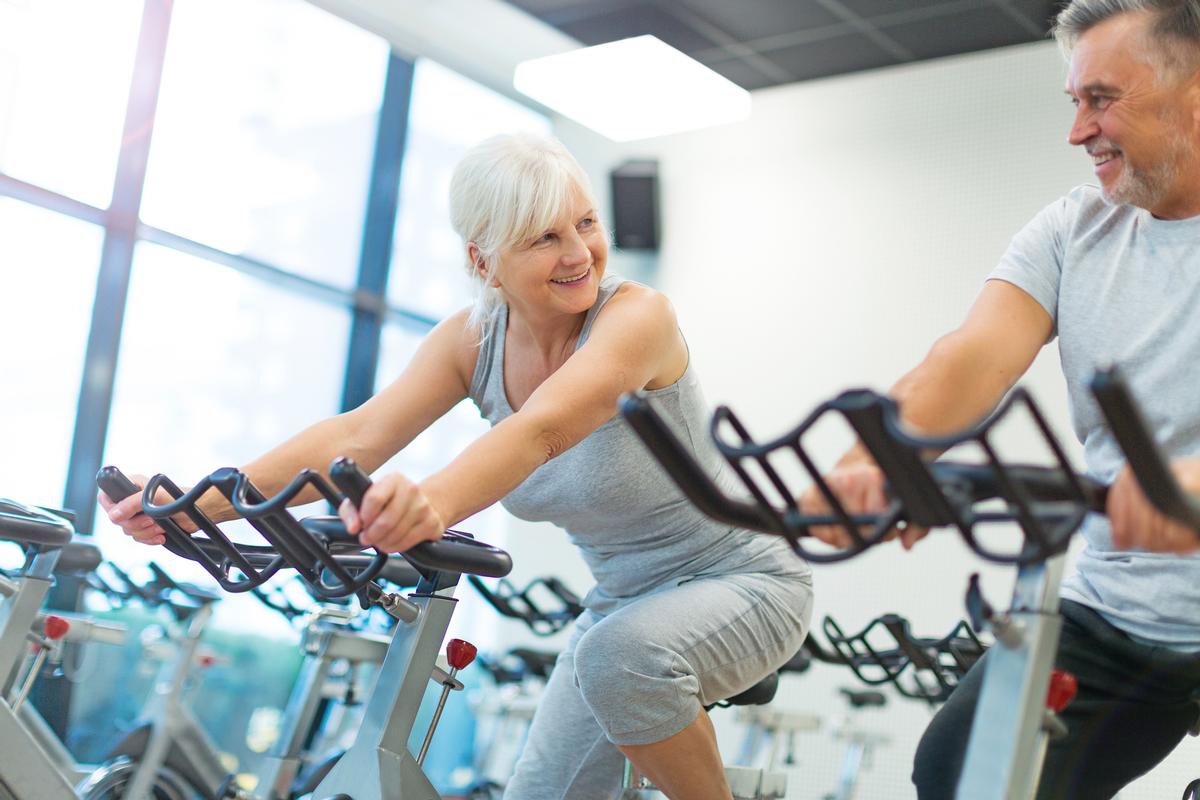NEWS
 |
| Study: exercise in old age prevents immune system from declining |
 |
| POSTED 13 Mar 2018 . BY Tom Walker |
 |
|
|
 |

|
|
The study found that those who keep physically active had levels of physiological function that would place them at a much younger age, when compared to the general population Credit: Shutterstock
|
|
 |
 |
|
Regular exercise in older age can prevent the human immune system from declining and protect people against illness, according to a study by King's College London and the University of Birmingham.
A study of amateur, older cyclists found that many had levels of physiological function that would place them at a much younger age, when compared to the general population.
The study, published in the Aging Cell journal, observed 84 male and 41 female cycling enthusiasts – aged 55 to 79 – in order to explore how the ageing process affects the human body and whether specific physiological markers can be used to determine your age.
For the study, Cyclists were recruited to exclude the effects of a sedentary lifestyle, which can aggravate health problems and cause changes in the body, which might appear to be due to the ageing process.
The men had to be able to cycle 100 km in under 6.5 hours, while the women had to be able to cycle 60 km in 5.5 hours. Smokers, heavy drinkers and those with high blood pressure or other health conditions were excluded from the study.
Participants underwent two days of laboratory testing at King’s College and each participant was given a physiological profile which included a wide range of measures – from cardiovascular, respiratory, neuromuscular and metabolic to endocrine and cognitive functions.
Volunteers’ reflexes, muscle strength, oxygen uptake during exercise and peak explosive cycling power were also determined.
The study showed that loss of muscle mass and strength did not occur in those who exercise regularly. The cyclists also did not increase their body fat or cholesterol levels with age and the men’s testosterone levels also remained high, suggesting that they may have avoided most of the male menopause.
More surprisingly, the study also revealed that the benefits of exercise extend beyond muscle as the cyclists also had an immune system that did not seem to have aged either.
An organ called the thymus, which makes immune cells called T cells, starts to shrink from the age of 20 and makes less T cells. In this study, however, the cyclists’ thymuses were making as many T cells as those of a young person.
The findings come as figures show that less than half of over 65s do enough exercise to stay healthy and more than half of those aged over 65 suffer from at least two diseases.
"The findings emphasise the fact that the cyclists do not exercise because they are healthy, but that they are healthy because they have been exercising for such a large proportion of their lives," said professor Stephen Harridge, director of the Centre of Human & Aerospace Physiological Sciences at King’s College London.
“Their bodies have been allowed to age optimally, free from the problems usually caused by inactivity. Remove the activity and their health would likely deteriorate.”
Dr Ross Pollock, lead author of the paper from King’s College London, added: “A sedentary lifestyle causes physiological problems at any age. Hence the confusion as to how much the decline in bodily functions is due to the natural ageing process and how much is due to the combined effects of ageing and inactivity.
“In many models of ageing lifespan is the primary measure, but in human beings this is arguably less important than the consequences of deterioration in health. Healthy life expectancy – our healthspan - is not keeping pace with the average lifespan, and the years we spend with poor health and disabilities in old age are growing.”
|
 |
|
|
 |
|
 |
 |
 |
|
|
|
 |
|
|
 |
|